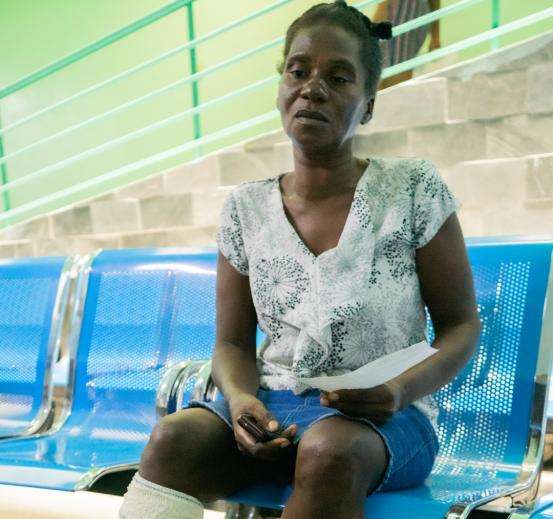The violence in Port-au-Prince, Haiti, has seen a new and dramatic increase since February 28, 2024, with armed groups attacking new parts of the city. This surge in conflict, occurring frequently in residential zones, has deeply affected the community and has seriously disrupted the health care system, which is struggling to remain functional.
At the Doctors Without Borders/Médecins Sans Frontières (MSF) Turgeau Emergency Center in Port-au-Prince, the conflict is a daily reality, with numerous victims arriving for treatment. "Every day, we see the consequences of this violence," noted Robin Meldrum, coordinator at the MSF emergency center. "Just last month, one of the youngest patients was a three-year-old boy who suffered a gunshot wound to the neck—a stark indication of how indiscriminate the violence has become."
Port-au-Prince hospitals are overwhelmed or inoperable
Health care services in Port-au-Prince are under severe pressure. The main hospital, l’Hôpital Général, is currently inoperable and situated within one of the conflict zones. Other hospitals are facing similar challenges or are overwhelmed with the number of casualties, limiting their ability to accept new patients. Even MSF’s Tabarre Hospital, which specializes in trauma and burn care, is often at capacity, forcing it to focus only on the most severely wounded patients.
The urban environment in Port-au-Prince has transformed drastically, with deserted streets and fortified neighborhoods becoming the norm as residents try to shield themselves from the violence. This change has led to a notable decrease in emergency visits, with the center in Turgeau seeing fewer than 40 daily patients, down from 80 to 100 in previous years.
MSF patient
Maudeline
"I can no longer risk going to the market. It's where I earn my living, but my safety is more important. Once I recover, I'll have to find a way to return safely."

The insecurity has compelled many, like Maudeline, a local market vendor, to alter their routines significantly. After being wounded by a stray bullet while selling vegetables, she now avoids the marketplace. "I can no longer risk going to the market," Maudeline said. "It's where I earn my living, but my safety is more important . Once I recover, I'll have to find a way to return safely."
Comprehensive support for Haitians affected by violence
Amid these challenges, MSF staff like Windy, a health educator, remain dedicated to their roles, providing essential medical and psychological support. "The city I knew is no longer the same” said Windy. “Our work now involves not only treating physical injuries but also addressing the mental scars left by constant fear and loss."

As Port-au-Prince confronts these turbulent times, MSF continues to play a crucial role in the community, offering care and support to those impacted by the violence. Their efforts underscore the resilience of both the medical teams and the residents they serve, and the ongoing need for comprehensive support in this crisis-stricken city.
MSF’s Turgeau Emergency Center reopened in early March, after it had suspended operations following the killing of a patient who was taken from an ambulance last December. Turgeau is located near the center of Port-au-Prince, close to locations that come frequently under attack.




